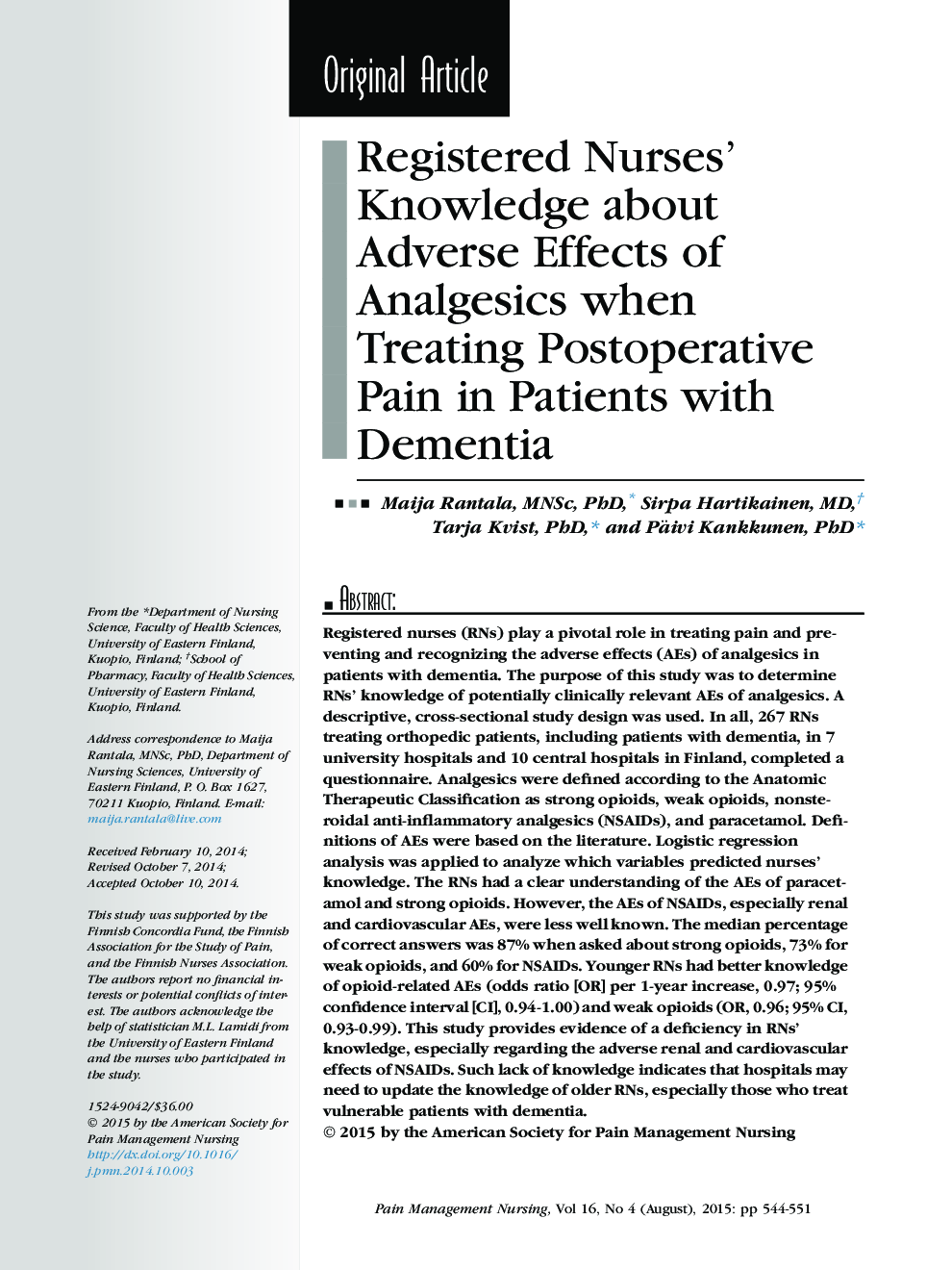| Article ID | Journal | Published Year | Pages | File Type |
|---|---|---|---|---|
| 2677953 | Pain Management Nursing | 2015 | 8 Pages |
Registered nurses (RNs) play a pivotal role in treating pain and preventing and recognizing the adverse effects (AEs) of analgesics in patients with dementia. The purpose of this study was to determine RNs' knowledge of potentially clinically relevant AEs of analgesics. A descriptive, cross-sectional study design was used. In all, 267 RNs treating orthopedic patients, including patients with dementia, in 7 university hospitals and 10 central hospitals in Finland, completed a questionnaire. Analgesics were defined according to the Anatomic Therapeutic Classification as strong opioids, weak opioids, nonsteroidal anti-inflammatory analgesics (NSAIDs), and paracetamol. Definitions of AEs were based on the literature. Logistic regression analysis was applied to analyze which variables predicted nurses' knowledge. The RNs had a clear understanding of the AEs of paracetamol and strong opioids. However, the AEs of NSAIDs, especially renal and cardiovascular AEs, were less well known. The median percentage of correct answers was 87% when asked about strong opioids, 73% for weak opioids, and 60% for NSAIDs. Younger RNs had better knowledge of opioid-related AEs (odds ratio [OR] per 1-year increase, 0.97; 95% confidence interval [CI], 0.94-1.00) and weak opioids (OR, 0.96; 95% CI, 0.93-0.99). This study provides evidence of a deficiency in RNs' knowledge, especially regarding the adverse renal and cardiovascular effects of NSAIDs. Such lack of knowledge indicates that hospitals may need to update the knowledge of older RNs, especially those who treat vulnerable patients with dementia.
